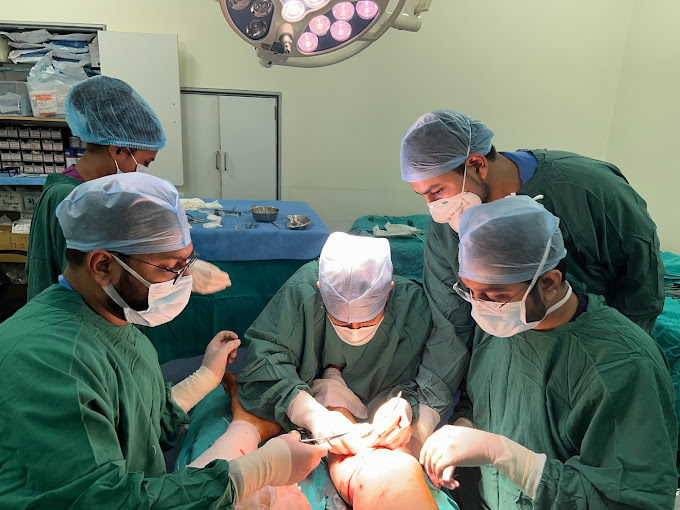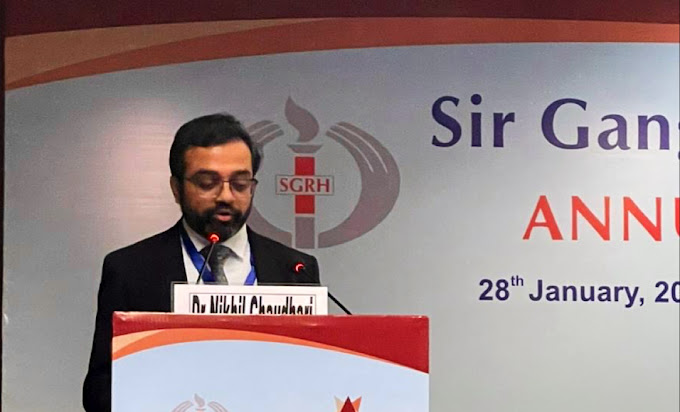For people living with diabetes, a small cut or blister on the foot can quickly become a serious problem. These wounds, called diabetic foot ulcers, need special care. If not treated correctly, they can lead to severe infections.
Managing these complex wounds requires a skilled and experienced specialist. So, how does the best diabetic foot surgeon in Delhi approach this critical task? It’s not just about one treatment; it’s a careful, step-by-step process.
Understanding the Challenge: Why Are Diabetic Foot Ulcers So Serious?
Diabetes can cause two big problems for your feet:
- Nerve Damage (Neuropathy): You might not feel pain, so a small injury can go unnoticed and get worse.
- Poor Blood Flow: Without good blood circulation, wounds struggle to heal and can’t fight off infection well.
This is why a simple ulcer needs expert attention.
The Step-by-Step Management Plan
A top specialist doesn’t just treat the wound; they treat the whole person. Here’s their common approach:
Step 1: A Thorough Examination
The first thing the best diabetic foot surgeon in Delhi will do is look at the ulcer very carefully. They will check:
- The size, depth, and location of the wound.
- For any signs of infection (redness, warmth, swelling, pus).
- The blood flow to your foot by checking your pulse or with a simple test.
- The feeling in your foot to understand the nerve damage.
Step 2: Cleaning and Removing Dead Tissue (Debridement)
This is a crucial step. The surgeon will gently clean the ulcer and remove any dead skin or tissue around it. This might sound scary, but it is very important. It helps healthy new tissue to grow and prevents infection from spreading.
Step 3: Off-Loading – Taking the Pressure Off
You cannot heal a wound if you keep walking on it! A key part of treatment is to keep pressure off the ulcer. Your surgeon might recommend:
- Special footwear or casts.
- Using crutches or a wheelchair for a while.
- Custom-made shoes that shift pressure away from the sore spot.
Step 4: Controlling Infection
If there is an infection, the surgeon will prescribe antibiotics. These might be in pill form or, for serious infections, given directly into a vein in the hospital.
Step 5: Advanced Wound Care Techniques
After the wound is clean, the focus shifts to helping it heal faster. The best diabetic foot surgeon in Delhi uses modern methods like:
- Special Dressings: Using advanced bandages that keep the wound moist and clean.
- Skin Grafts: Taking a small piece of healthy skin from another part of your body to cover the ulcer.
- Other Advanced Therapies: Treatments like negative pressure wound therapy (a vacuum dressing) can also be used to speed up healing.
Step 6: Long-Term Prevention and Education
The final, most important step is to prevent ulcers from coming back. Your surgeon and their team will teach you how to care for your feet every day. This includes:
- Checking your feet every single day for any cuts or blisters.
- Keeping your blood sugar levels under control.
- Never walking barefoot.
- Wearing shoes that fit perfectly.
See how a Dr. Nikhil Chaudhari cares for a diabetic foot wound in this short video:
How to Protect Your Feet with Diabetes | Foot Care Tips by Dr. Nikhil Chaudhari
Why Seeing a Specialist in Delhi Matters
Managing a diabetic foot ulcer is complex. It requires a surgeon who is not just a skilled operator but also an expert in wound care, infection control, and diabetes management.
The best diabetic foot surgeon in Delhi will work with a team of doctors—including endocrinologists (diabetes specialists) and infectious disease experts—to create a plan that is perfect for you. Their goal is always to save your limb and get you back on your feet safely.
If you or a loved one is struggling with a diabetic foot ulcer that isn’t healing, don’t wait. Seeking help from a specialized surgeon early can make all the difference. Contact Dr. Nikhil Chaudhari today!
Disclaimer: This blog is for informational purposes only and should not be considered medical advice. Please consult with a qualified healthcare professional like Dr. Nikhil Chaudhari to discuss your specific condition and treatment options.



